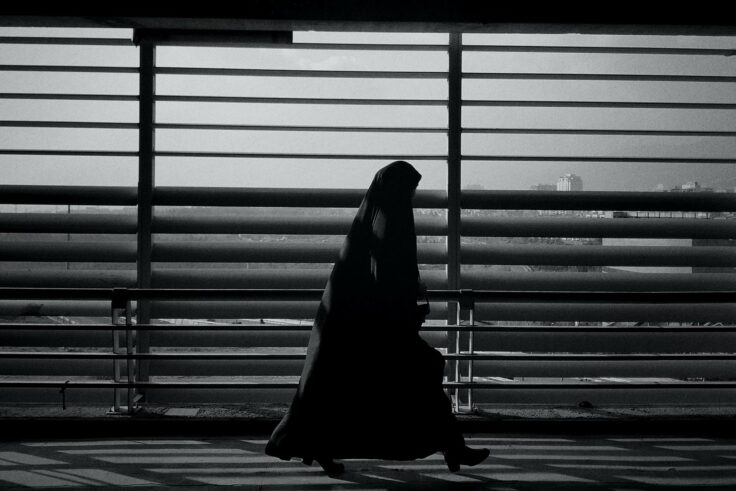First it was banning veils in public schools in 2004, then a ban on niqabs in public spaces in 2011, then the burkini ban in 2016, and France’s battle against the hijab has yet to be over. The nation has officially banned women who are under the age of 18 from wearing the hijab anywhere in public.
The move comes as part of a proposed Separatism bill, which prohibits minors from wearing anything that “ostensibly manifest a religious affiliation” or “would signify the inferiority of women to men.” Whilst the hijab is not directly named, French President Emmanuel Macron has always maintained the view that the hijab did not align with the nation’s secular ideals.
The bill also bans hijab wearers from accompanying their children on school trips. The bill has not yet gone into effect, only once confirmed by the National Assembly will it become law.
The news sparked global outrage. “Banning the hijab and/or controlling how Muslim women dress is just another example of men policing women’s bodies, but it just doesn’t get half the attention or outrage,” wrote one Twitter user.
https://twitter.com/shahedezaydi/status/1379137618399596550?s=20
Olympic athlete Ibtihaj Muhammad took to her Instagram to express her views on the matter, writing: “WTH FRANCE?! This is what happens when you normalize anti-Islamic and anti-Muslim hate speech, bias, discrimination, and hate crimes— Islamophobia written into law.”
Henna artist and designer Azra Khamissa decided to take matters into her own hands, taking to her Instagram stories to share the reasons she and millions of women across the globe choose to wear the hijab.
“It’s my second skin,” said one user. “It’s an identity not only threads on skin.” “It defines my character, personality, strength, religion,” wrote another. “Because it’s my choice,” another user added.
Voir cette publication sur Instagram
Une publication partagée par Ibtihaj Muhammad (@ibtihajmuhammad)
Whilst backlash ensued on the internet, the move is hardly surprising. Throughout its history, the nation’s governmental bodies have made clear their leniency towards a fully-entrenched assimilation model that defined its democracy through a lens of secularism—or laïcité in French.
But while the concept puts forward the principle of the separation of the state and religious affairs in theory, in practice it shed light on the nation’s islamophobia. Prior to the bill, Muslims had long been subjected to police brutality in the nation which are supported by ‘emergency laws’ that allow warrantless searches. That’s just one example.
Unlike multiculturalist models that give way to individualism like in the United States and the United Kingdom, France’s ‘secularist’ ideals push forward a more collective approach to the concept of separation of church and state, paving the way for a more blatant assimilation model that puts its minority populations at risk of erasure—removing a sense of agency and freedom.
Being home to the largest number of Muslims in the West (over 5 million as of 2019, with those of Maghrebi origin making up 82 percent of it) this of course has led to a fractured society, with Muslim women often bearing the brunt of its consequences as exhibited by the Separatism bill.









